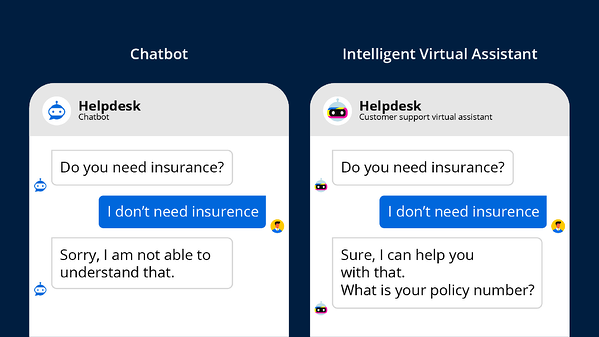
Crafting Intelligent Conversations: Coding for Virtual Assistants & Chatbots
Virtual assistants and chatbots have become integral parts of our digital experiences, enhancing customer interactions, automating tasks, and providing information promptly. Behind the scenes, skilled programmers engage in the art of coding to breathe life into these intelligent conversational agents.
The Evolution of Virtual Assistants and Chatbots
Virtual assistants and chatbots have evolved significantly, moving beyond simple scripted responses to more intelligent and context-aware interactions. This evolution is fueled by advancements in natural language processing (NLP) and machine learning, all made possible through meticulous coding efforts.
Coding the Brain: Natural Language Processing (NLP)
At the heart of virtual assistants and chatbots is Natural Language Processing (NLP). Programmers use coding languages to develop algorithms that enable machines to understand, interpret, and generate human-like text. This coding prowess is what allows chatbots to comprehend user queries and respond in a coherent and contextually relevant manner.
User Interaction Design: Coding for Seamless Experiences
Effective coding for virtual assistants involves creating seamless user experiences. This includes designing interfaces that are intuitive and user-friendly. Skilled programmers use coding languages to implement interactive elements, ensuring that users can engage effortlessly with virtual assistants and chatbots.
Now, if you’re intrigued by the world of coding for virtual assistants and chatbots, consider exploring Coding for virtual assistants and chatbots for valuable insights and resources tailored to enhance your coding journey.
Integrating Machine Learning: The Coding Challenge
To make virtual assistants smarter, machine learning algorithms are often integrated. This coding challenge involves training models on vast datasets to recognize patterns and improve responses over time. Programmers use coding languages to implement and fine-tune these machine learning algorithms for optimal performance.
Personalization through Coding: Tailoring Experiences
Effective virtual assistants go beyond generic responses by tailoring interactions to individual users. This level of personalization is achieved through coding algorithms that analyze user data and adapt the conversational flow accordingly. The artful coding of personalization enhances user satisfaction and engagement.
Ensuring Security: A Coding Priority
As virtual assistants handle sensitive information, ensuring security is a top priority for programmers. Coding practices must include robust security measures to protect user data and prevent unauthorized access. This involves encrypting communication channels, implementing secure authentication, and regularly updating security protocols.
Scalability: Coding for Growing Demands
The popularity of virtual assistants and chatbots often leads to increased demand. Coding for scalability is essential to ensure that these conversational agents can handle a growing user base. Skilled programmers employ coding techniques that allow for seamless scalability, accommodating a surge in interactions without compromising performance.
Monitoring and Improving: Continuous Coding Cycle
The work doesn’t end once a virtual assistant is deployed. Programmers engage in a continuous coding cycle, monitoring interactions, analyzing feedback, and making improvements. This iterative process ensures that virtual assistants evolve, providing increasingly sophisticated and valuable services.
Future Trends: Coding Tomorrow’s Virtual Assistants
The future of coding for virtual assistants holds exciting possibilities. Advancements in artificial intelligence, augmented reality, and voice recognition technologies will influence how programmers code the next generation of conversational agents. Staying informed and adapting coding skills to these trends will be key for developers in this dynamic field.
Conclusion
In conclusion, coding for virtual assistants and chatbots is a dynamic and evolving field. Skilled programmers play a crucial role in crafting intelligent conversations, ensuring seamless user experiences, and addressing the challenges of security and scalability. If you’re ready to delve into the intricacies of coding for virtual assistants, explore Coding for virtual assistants and chatbots for resources tailored to enhance your coding journey in this fascinating realm.
